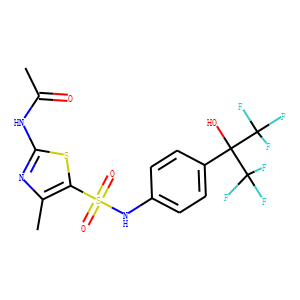ROR
ROR (Retinoic Acid Receptor-related Orphan Receptors) are a family of nuclear receptors that play essential roles in various physiological processes, including immune function, metabolism, and circadian rhythm regulation. These receptors, including RORα, RORβ, and RORγ, function as transcription factors by binding to specific DNA sequences to regulate gene expression. RORs are unique because they are not activated by classical endocrine hormones but may be influenced by endogenous sterols or other lipid-derived molecules. Their involvement in key biological pathways makes them significant in both normal physiology and disease states, such as autoimmune diseases, metabolic disorders, and cancer. Thus, RORs are promising targets for developing new therapeutic agents.

